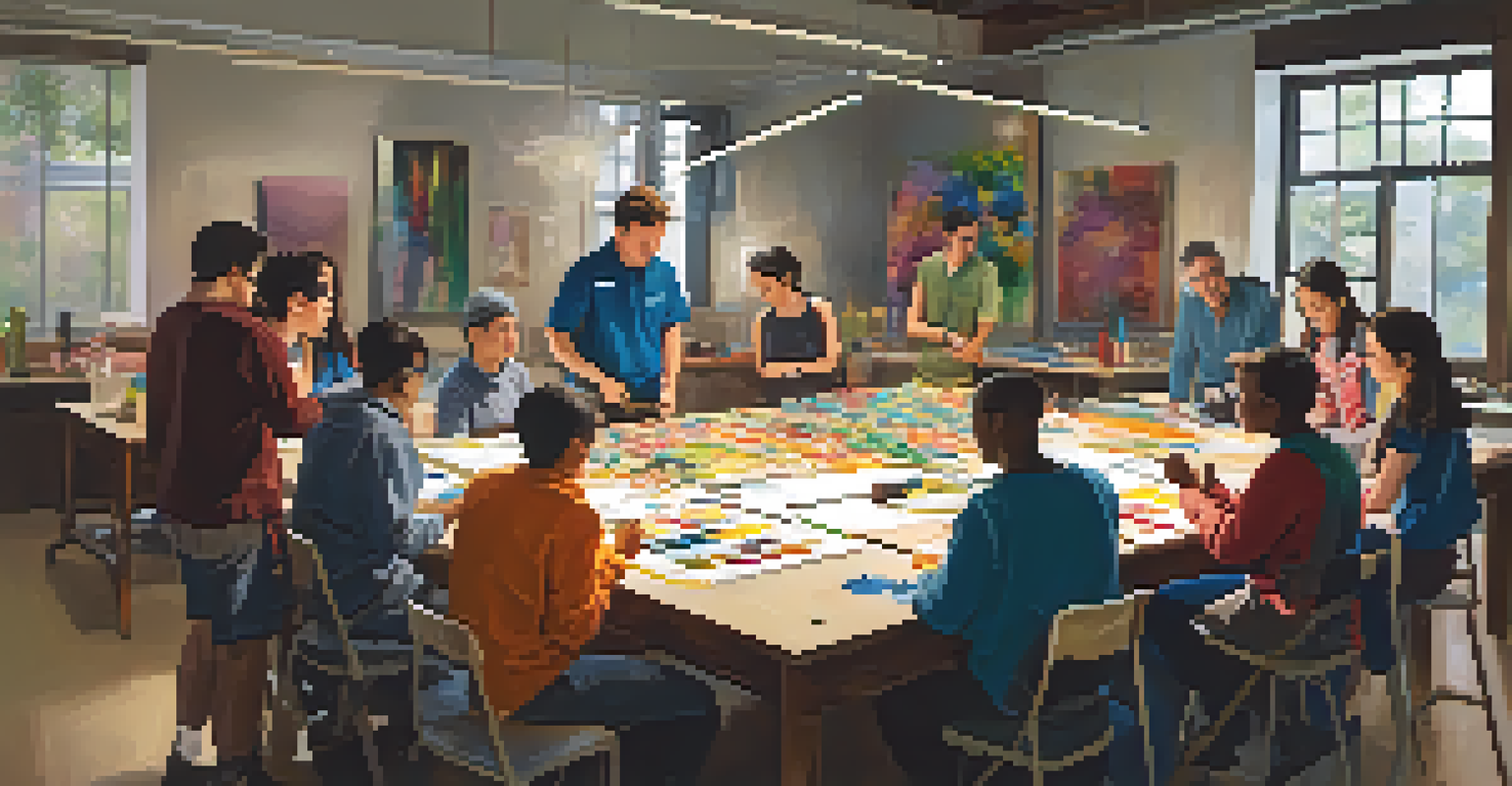Participating in Workshops to Boost Technical Skills

Understanding the Value of Workshops for Skill Development
Participating in workshops can significantly enhance your technical skills by providing hands-on experience and direct interaction with experts. These events create a unique environment where learning is not just theoretical; you get to apply concepts in real-time. This practical approach helps solidify your understanding and gives you confidence in your abilities.
Learning never exhausts the mind.
Moreover, workshops often cover the latest trends and technologies, keeping you updated in a fast-evolving field. Whether it’s coding, data analysis, or design, these sessions are tailored to address current industry needs. This relevance makes your learning experience more applicable and beneficial for your career.
Lastly, workshops provide a fantastic opportunity to network with like-minded individuals and industry professionals. Building relationships in these spaces can lead to collaborations, mentorships, and job opportunities that may not arise in traditional educational settings.
Types of Workshops You Can Attend
Workshops can vary widely based on your interests and career goals. You might find coding boot camps, design sprints, or even specialized sessions on cloud computing. Each type of workshop has its unique focus, allowing you to choose what aligns best with your aspirations.

For instance, if you’re a budding developer, a coding workshop can introduce you to new languages or frameworks. Alternatively, if you’re in marketing, a workshop on data analytics tools could be invaluable. The key is to identify your areas of interest and seek out workshops that cater to them.
Workshops Enhance Technical Skills
Participating in workshops provides hands-on experience and direct interaction with experts, solidifying your understanding of key concepts.
Additionally, many workshops offer different formats, ranging from one-day events to multi-week courses. This flexibility means you can find an option that fits your schedule and learning style, making it easier to engage without feeling overwhelmed.
How to Find the Right Workshop for You
Finding the right workshop involves a bit of research. Start by exploring online platforms like Eventbrite, Meetup, or even LinkedIn. These platforms often list numerous workshops tailored to various skill levels and interests, making it easier to discover what’s available.
An investment in knowledge always pays the best interest.
Another great resource is your local community college or adult education center. They frequently host workshops on technical skills, and you might even find some at a low cost or free. Don’t overlook online learning platforms, which have surged in popularity and offer a plethora of virtual workshops.
Lastly, consider asking for recommendations from peers or mentors in your field. Personal experiences can guide you towards reputable workshops that deliver value, ensuring you invest your time wisely.
Preparing for Your Workshop Experience
Preparation is key to maximizing your workshop experience. Before attending, review the topics to be covered and familiarize yourself with any prerequisites. This will help you feel confident and ready to engage with the material from the get-go.
It’s also beneficial to set specific goals for what you want to achieve during the workshop. Whether it’s mastering a tool or connecting with certain individuals, having clear objectives can help you stay focused and motivated throughout the event.
Diverse Workshop Options Available
Workshops vary greatly in focus and format, allowing individuals to choose sessions that align with their interests and schedules.
Lastly, remember to bring the necessary materials, such as a notebook, laptop, or any required software. Being well-equipped ensures you can actively participate and take full advantage of the learning opportunities presented.
Engaging Actively During Workshops
Active engagement is crucial when participating in workshops. Don’t hesitate to ask questions or share your thoughts; this interaction enriches the learning experience not just for you but also for others. Remember, everyone is there to learn, and your input can spark valuable discussions.
Consider participating in group activities or exercises, as these often solidify your understanding of the subject matter. Collaborating with others allows you to see different perspectives and approaches, enhancing your overall grasp of the skills being taught.
Lastly, take notes during the sessions to capture key insights and techniques. These notes will be invaluable for your reference later, allowing you to revisit concepts and continue learning even after the workshop concludes.
Post-Workshop Actions to Reinforce Learning
After the workshop, it’s essential to reinforce what you’ve learned. Start by reviewing your notes and any materials provided by the instructor. This reflection will help cement the knowledge in your mind and identify areas where you may need further practice.
Consider applying new skills in real-life projects, whether at work or through personal ventures. Hands-on application is one of the best ways to enhance retention and boost your confidence in using these skills effectively.
Continuous Learning is Essential
Embracing a mindset of continuous learning through workshops keeps you adaptable and competitive in a fast-evolving job market.
Moreover, connect with fellow attendees after the workshop to discuss insights and share resources. This continued collaboration can foster accountability and encourage further exploration of the topics covered.
The Long-Term Benefits of Continuous Learning
Participating in workshops is just one piece of the puzzle in your lifelong learning journey. The technical skills you acquire can open up new job opportunities, career advancements, or even a chance to pivot into a new field entirely. Investing in your education pays off in numerous ways.
Additionally, the relationships you build during workshops can lead to mentorships or partnerships that enrich your professional life. Having a network of supportive peers and mentors can provide guidance and encouragement as you navigate your career path.

Ultimately, embracing a mindset of continuous learning keeps you adaptable and relevant in today’s dynamic job market. As technology evolves, staying updated through workshops and other educational experiences ensures you remain competitive and prepared for what’s next.